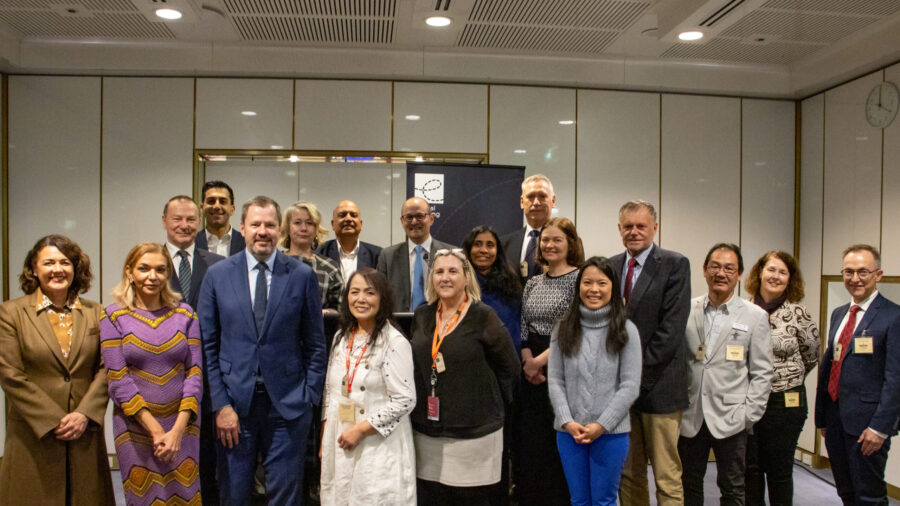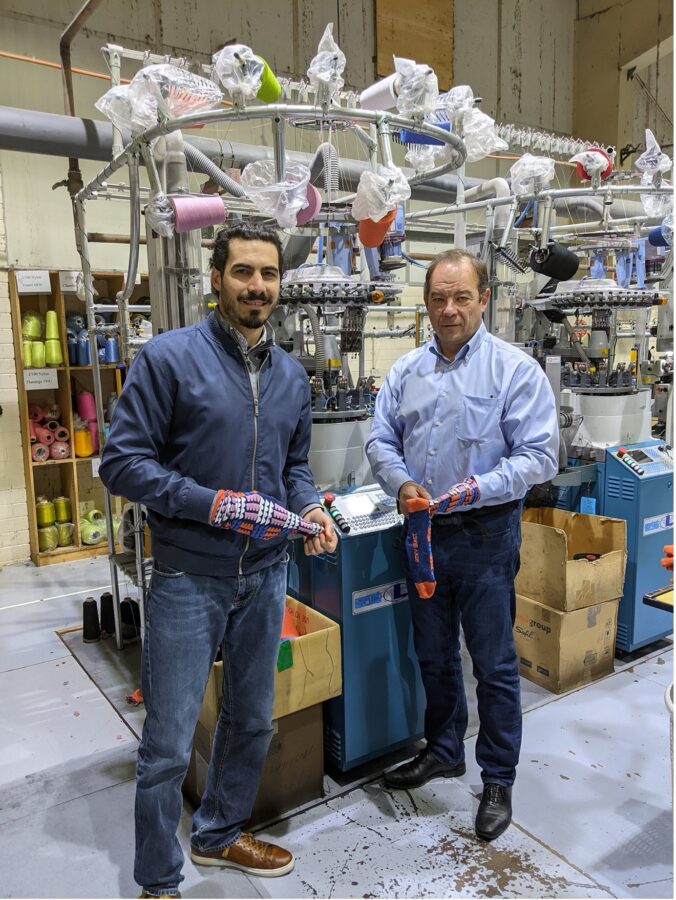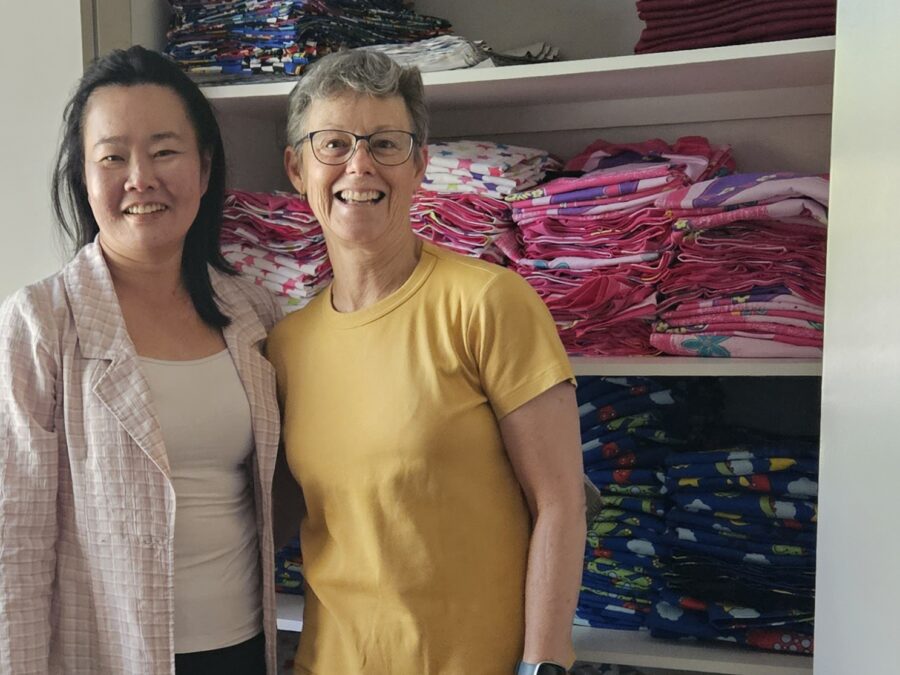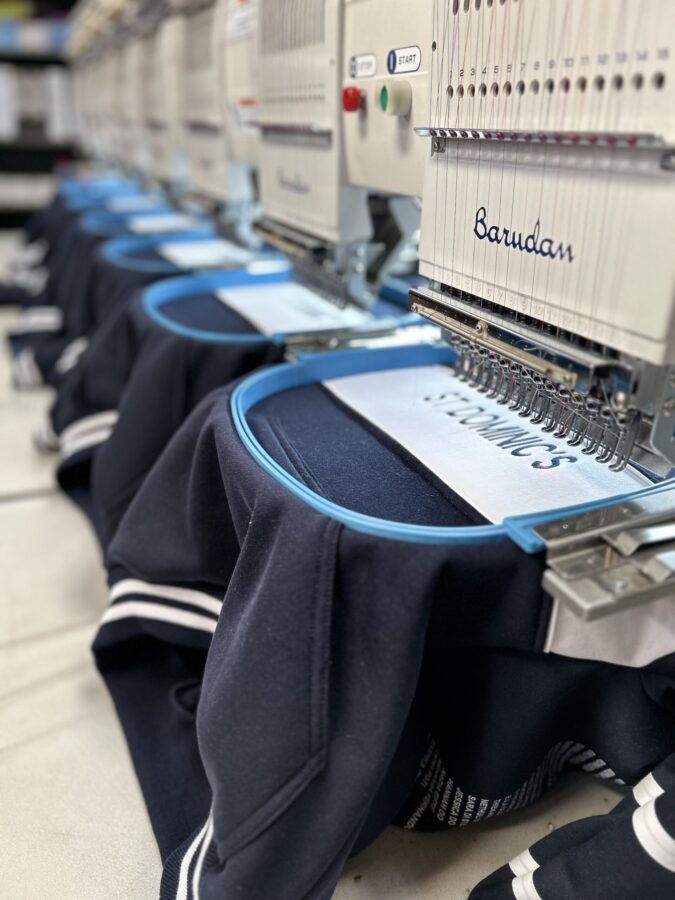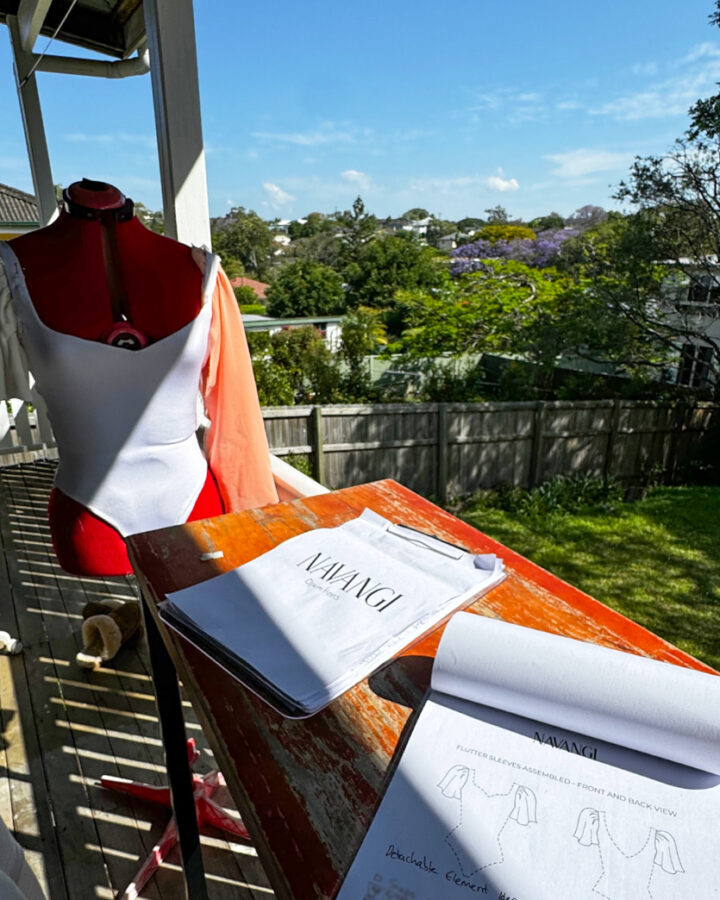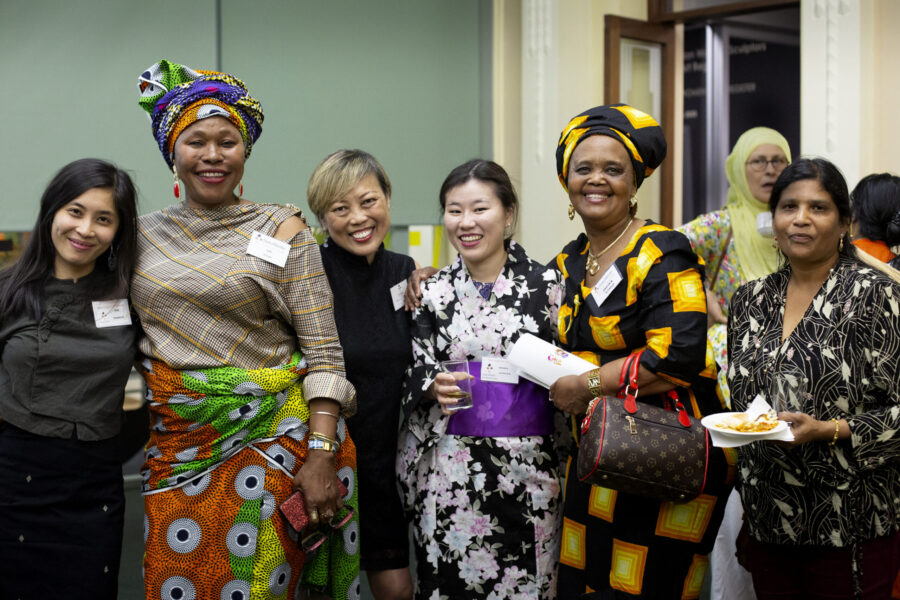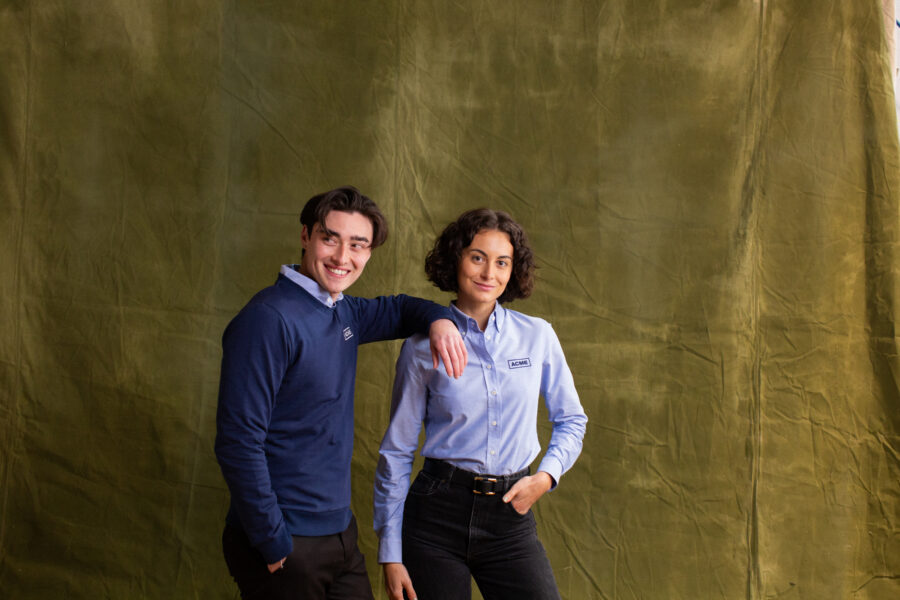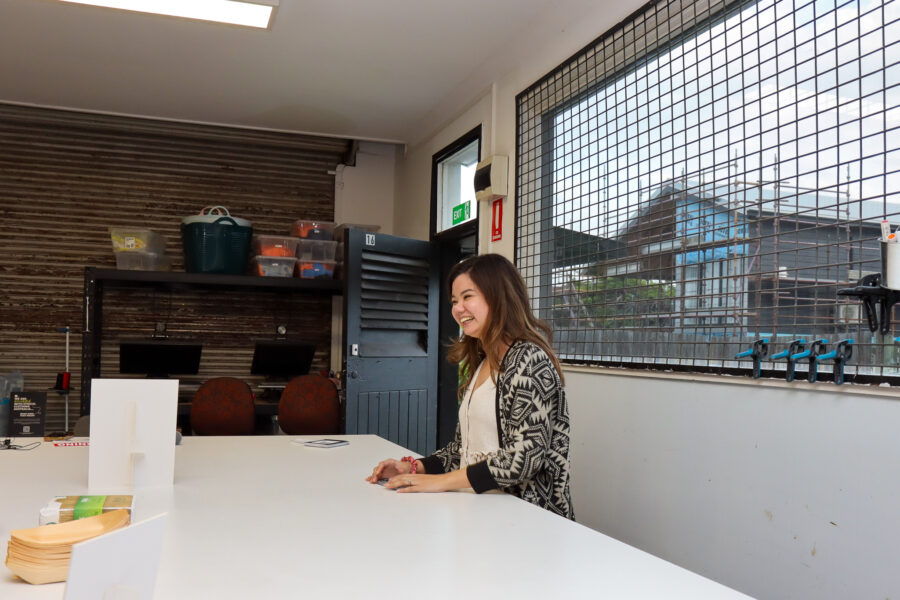Rachel also touched on why Brisbane and Queensland are an important focus for Ethical Clothing Australia right now.
“From our own Queensland accredited businesses to Fashion Queensland’s community of over 350 designers, many of whom are manufacturing locally, we know there is a thriving industry of designers, makers and manufacturers here,” she said.
“We see a real opportunity to grow in this state. Even just from a couple of chats here tonight, I can see there’s such a deep commitment to ethical practices,” she went on. “The response for tonight speaks for itself!”
The conversation also did not shy away from the realities of making clothes in Australia.
“We’re stagnant right now in terms of capability and skills,” Rachel said when Laura asked what she thought was the major challenge facing the local industry. “We’re heading upwards and everyone in this room is a part of that, but it is still a challenge for everyone when it comes to skills and capabilities.”
She also pointed out that Ethical Clothing Australia not only has their focus on supporting Queensland fashion, but also on contributing to a robust local garment industry – sharing that the organisation is advocating to the Queensland government to encourage investment back into the local industry for the benefit of designers, brands and manufacturers.
“The Queensland government actually has an extraordinary procurement policy,” she explained. “One that preferences procuring from local manufacturers and brands.
“Now we need to keep pushing government to use that enormous buying power to invest in the local TCF industry, because with that investment comes confidence, innovation and growth of those capabilities.”
















